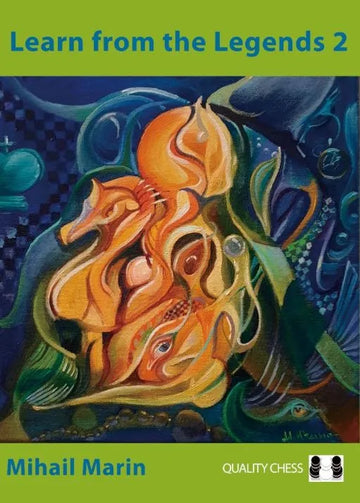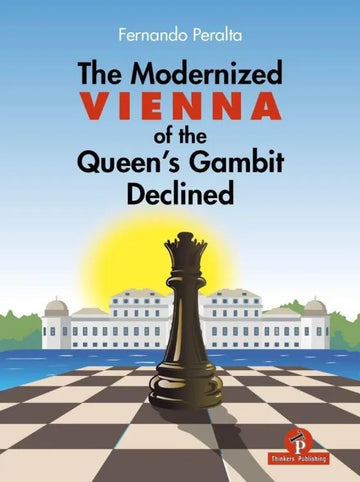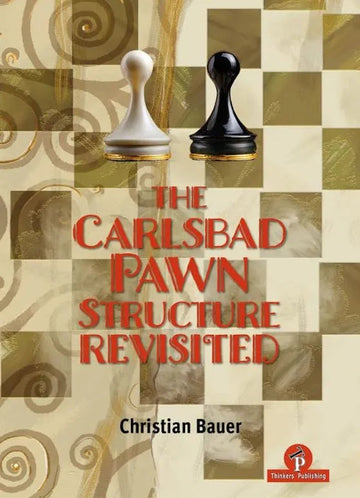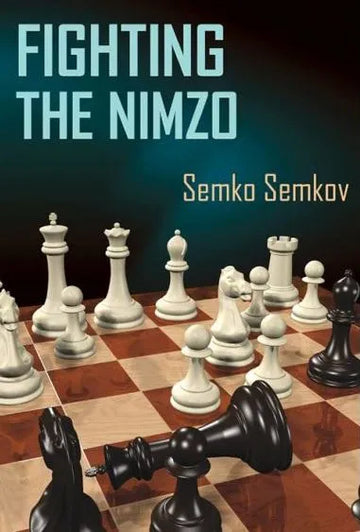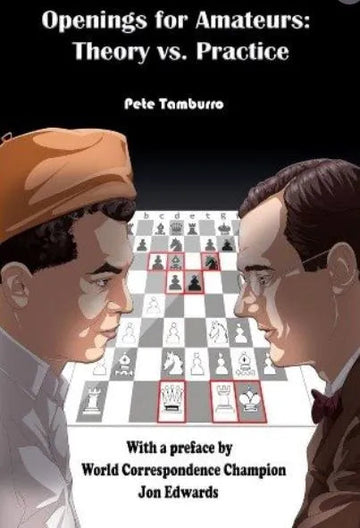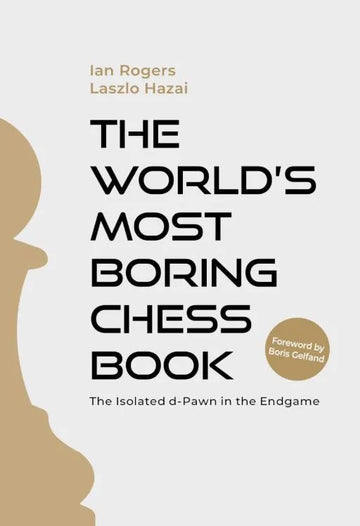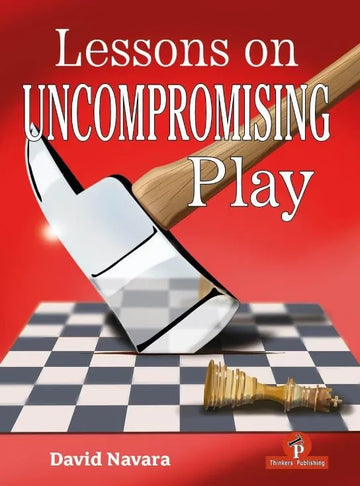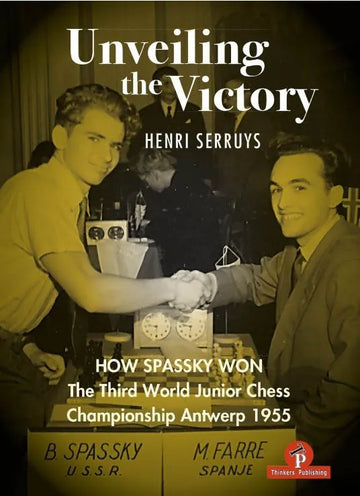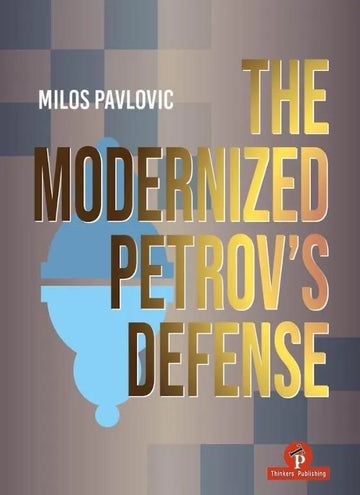10 Must Have Advanced Chess Books
Learning chess is a lifelong journey. If you have already read most of the books from my must-have beginner chess books list, and even my intermediate list, and you are still eager to learn more, then you may be ready for some of these advanced chess books. Be warned, these books are not easy reading! Be prepared for a tough study session, even for the best players. Don't be discouraged, though, if the books seem difficult. That difficulty will be what helps push you forward. Every book on this list has something you can learn. Whether it is more advanced endgame mastery, strategic and positional understanding, or advanced tactics and calculation, the books on this list will help you excel.

Chess Books for Chess Endgames
Mastering the endgame can be the step that vaults you from intermediate to advanced. Getting to a winning position is one thing, but consistently converting that position to a win takes years to master. This book list will help with that process. The endgame can be brutal, so be prepared for some tough learning and intense reading! Mastering the endgame can truly be the difference between an intermediate player and an advanced player. Learning those engame techniques will help you convert your winning positions to actual wins. Endgame study is a great use of your study plan time.
1. Silman’s Complete Endgame Course – Jeremy Silman
Silman’s Complete Endgame Course has been on each one of my lists, beginner, intermediate, and advanced, because Silman covers many different layers and levels of the endgame. If you read the first few chapters as a beginner or intermediate level player, now it is the time to dive in and learn the rest. Silman has written one of the most comprehensive endgame books available, with something in it for chess players of all levels, and it is an excellent resource for building confidence in endgame fundamentals.

I recommend this book for anyone who wants to push their endgame knowledge to the next level. Combine this with the other endgame books on this list and you will have master level engame knowledge.
2. Endgame Strategy – Mikhail Shereshevsky
Endgame Strategy by Mikhail Shereshevsky is a must-read chess classic that dives deep into the essential principles of endgame play. Unlike traditional endgame manuals that focus on theoretical positions, this book emphasizes the key ‘big ideas’ that will guide you to make the most practical and promising moves in any endgame scenario.

Shereshevsky encourages a schematic approach to thinking, rather than obsessing over every single move. By teaching valuable concepts like "don’t hurry," "centralize your king," and "fight for the initiative," this book provides essential strategies that will push you to victory! These principles not only improve your endgame play but also shape your overall chess mindset for the better.
3. 100 Endgames You Must Know Workbook – Jesús de la Villa
This is a workbook for "100 Endgames You Must Know" by Jesús de la Villa which revolutionized how players approach endgame theory, dispelling the notion that endgames are overly complex or dull. This book has helped countless players enhance both their endgame knowledge and results. Jesús de la Villa observed a recurring issue among his students: they struggled to remember key endgame concepts when it mattered most. To tackle this, he developed a new book filled with hundreds of exercises designed to reinforce the essential ideas from "100 Endgames You Must Know."

So these exercises, carefully selected to emphasize common mistakes made by both beginners and advanced players alike, are organized by the same topics from the original book. By working through them, players can solidify their understanding, refresh their knowledge, and enhance their calculation skills. This practical guide is a valuable resource for anyone wanting to elevate their endgame abilities.
Intermediate Chess Books with Strategic & Positional Understanding
Mastering the strategic and positional aspects of chess is a lifelong struggle. In this section, we dive into books that provide invaluable insights into understanding the deeper and more difficult layers of the game. These books focus on long-term planning, pawn structures, and the critical thinking that shapes every move you make. When people who don’t play the game of chess think that a chess player sees a hundred moves in advance, they don’t understand that this positional understanding is where that true seeing the future happens.
Knowing, for example, which pawn structure will better suit the pieces you have on the board is the kind of next-level knowledge that will give you an edge. The following books will help you build a foundation for making better, more informed decisions on the board. From the thought processes of grandmasters to practical advice on handling complex positions, take these books and improve!
4. Positional Decision Making in Chess – Boris Gelfand
Positional Decision Making in Chess provides a look into the thought process of top grandmaster Boris Gelfand. Gelfand delves into critical concepts like the squeeze, space advantage, pawn structure transformation, and the shifting of advantages throughout a game.
Boris Gelfand won the European Junior Championship in 1987 and reached World No. 3 in 1990. He has led the Israeli team to numerous medals in European Championships and Chess Olympiads. Gelfand won in the 2009 World Cup and participated in six Candidates tournaments, winning in 2011. The book is co-authored by Grandmaster Jacob Aagaard, the author another book on this book list.

5. Chess Structures: A Grandmaster Guide – Mauricio Rios
This book is an excellent resource for furthering your understanding in the pawn structures of your specific openings. Understanding those pawn structures is key to mastering chess, as they significantly impact piece placement and strategic decisions. In this book, Mauricio Flores Rios explores the 28 most common pawn structures in chess, offering a deep dive into their key ideas and plans. Through model games, Rios demonstrates how each structure arises from various openings, helping players enhance their strategic thinking while avoiding common pitfalls. The book also includes 50 engaging positional exercises with detailed solutions, allowing readers to apply their knowledge and strengthen their skills.

6. How to Reassess Your Chess (4th Edition) – Jeremy Silman
Silman made my list earlier with his endgame course, and How to Reassess Your Chess also made my list for intermediate books. So why include it here in the must-have advanced chess books? This is one of those books that you can read and learn from as an intermediate player, but you will fully contribute to your learning as an advanced player. The things you missed as an intermediate will now come through in this excellent book and open up a new level to your chess understanding.
Chess Books for Grandmaster Thinking Process & Calculation
7. Grandmaster Training Camp 1 – Calculation! – Sam Shankland
Grandmaster Training Camp 1 – Calculation! offers a unique opportunity to train with Super-GM Sam Shankland as he tackles 300 challenging problems selected by his long-time trainer. These are high-level calculation exercises and practice perfect for advanced players. In this book, Sam provides insights into his thought process, sharing what he saw, what he missed, and the skills required to solve these problems. The book covers key topics: Tactics, Candidates, Combinations, Endgames, Defense, and Deep Calculation. Challenging even for grandmasters, this book allows readers to measure their skills against one of the world’s top chess players.

8. Grandmaster Preparation - Attack & Defence – Jacob Aagaard
Learning how to attack at a higher level is tough. Your opponents are good; they know how to defend, so how do you level up your play? In Attack & Defence, Grandmaster Jacob Aagaard breaks down the essential principles of attacking and defending in chess. By dividing dynamic chess into manageable areas of skill, Aagaard offers a clear path to expanding your understanding of these crucial aspects of the game. Aagaard won the British Championship in his first attempt and is the only author to have won the prestigious Boleslavsky Medal and several other awards, including the ACP, Guardian, ECF, and ChessCafe Book of the Year. As a FIDE Senior Trainer, he now dedicates his time to coaching the Danish elite after retiring from professional chess. His training materials are trusted by players of all levels, from amateurs to World Champions.

Tactical Mastery in Chess Games
There are lots of good resources for top-tier tactics for advanced players, but I wanted to include at least one on my list. Even as you have improved to this advanced level, don’t let your tactical skills retrograde. Keep them ready!
9. 1001 Chess Exercises for Advanced Club Players – Franz Kohn
In this follow-up to his popular 1001 Chess Exercises for Club Players, FIDE Master Frank Erwich guides you through the next level of tactical mastery. This book helps you identify weaknesses in your opponent's position, recognize common tactical patterns, visualize tricks, and improve your calculation skills. Even in the modern chess world where you can have chess puzzles on your phone or on your computer, the act of working through a book of chess puzzles can be very rewarding, and these 1001 puzzles are a great resource.

Not Just Chess Books: Software & Tools for Advanced Players
Wait. That's not a book! Well, having graduated to an advanced player, you may want to consider purchasing a high-level chess software like Chessbase as you go into more and more chess tournaments and analyze your games and your opponent's games.
10. CHESSBASE 18 - Premium Package
ChessBase 18 is a powerful, stand-alone chess database used by everyone from World Champions to amateurs. It offers a comprehensive suite of tools for analyzing games, preparing for opponents, and improving your chess skills. With features like instant and tactical analysis, cloud analysis, game retrieval by openings and players, and a vast collection of in-depth analysis, ChessBase caters to players of all levels. Whether you're studying individual games, creating training materials, or tracking opening trends, ChessBase enhances your understanding of the game, making it an essential tool for serious players, a chess coach, and chess enthusiasts.

Chess Openings and How to Learn Them
Openings beyond opening principles are best learned through specific openings. Pick which openings you want to learn most, and then find a great opening book or repertoire to use and learn from. There are many good opening books out there, but they will not suit every advanced player since not all players play the same openings.
Frequently Asked Questions
A lot of these books are meant for higher-level players. If you have start playing USCF or FIDE games, then that means you have an ELO. If that ELO is above 1600, then I think you can start to learn from most of these books, but some of them are helpful even before. Reassess Your Chess and Silman’s Endgame Course are books that are useful at levels before that as well.
Check out this post about best books for beginner chess players, and pick up something like Bobby Fischer Teaches Chess to learn the absolute basics. Good luck on starting your chess journey!
These are books for advanced players specifically, so make sure you are ready before diving in.
Positional chess is a strategic approach focused on improving piece placement, controlling key squares, and managing pawn structures to create long-term advantages. Rather than seeking quick tactics, positional chess requires a deeper understanding.
Chessbase is a great tool, but it is by no means necessary. Lichess.org and its study tools are a great alternative if the cost of Chessbase is prohibitive. If you can try Chessbase, it really could be the step that is separating you from your next step in you chess life.
All of these great tools and resources will be enhanced when looked at or discussed with a good chess coach, so consider it! You can find a chess coach at your local chess club or using online resources.

